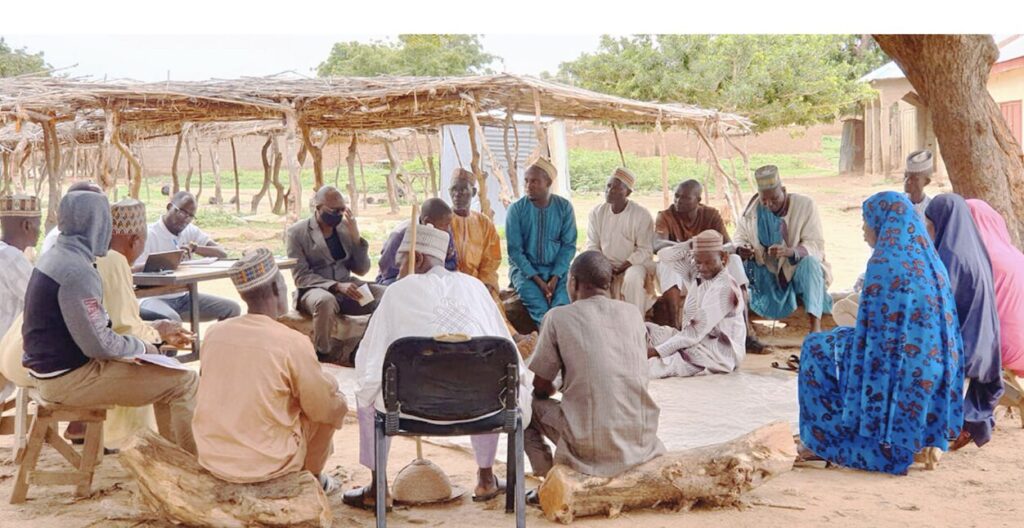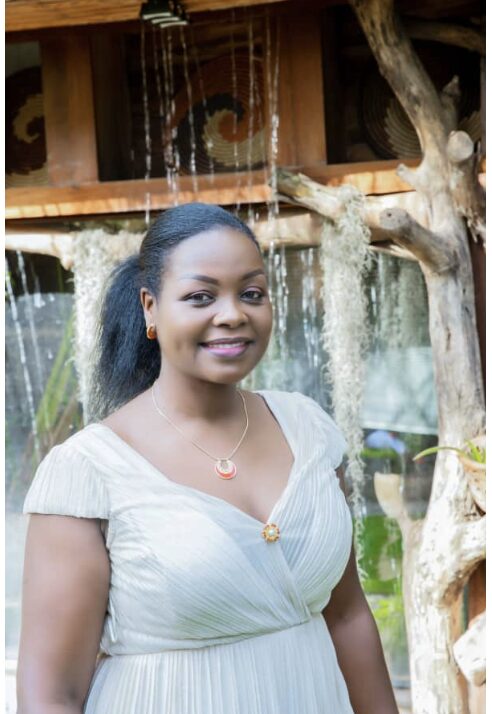Karuna Center for Peacebuilding Celebrates 30th Year Empowering Communities to Build Peace

A meeting of a local, community-based early warning-early response committee formed by the 2019-2024 Protecting Our Communities Karuna Center initiative in Nigeria. Photo: Karuna Center for Peacebuilding
Source: Karuna Center for Peacebuilding
On Saturday, September 14, 2024, the Western Mass-based Karuna Center for Peacebuilding will hold a public event to celebrate 30 years of empowering communities to build peace. The event is free and open to the public and will be held at the at the Amherst Woman’s Club (35 Triangle Street) from 3-5 p.m. At a time when the horrors of war dominate the news this event will focus on the constructive, long-term impact of collaborative peacebuilding efforts.
Event highlights include a presentation from special guest Rosette Sebasoni, who was the in-country program manager of Karuna’s 2016-2019 Healing Our Communities program in Rwanda. Over the past year, Ms. Sebasoni has revisited participants in Karuna’s program to collect stories of reconciliation between ex-perpetrators and the families they harmed. Herself a survivor of the 1994 Genocide Against the Tutsi, Ms. Sebasoni will be visiting Amherst to reflect on the generational impact of peacebuilding efforts 30 years later.

Karuna’s programs focus on empowering people in areas impacted by violent conflict, improving the security and wellbeing of their communities now and for future generations. The organization works closely with local organizations to develop peacebuilding systems that community members can use in perpetuity — including dialogue and conflict analysis skills, and building networks to prevent and mitigate violence.
“The theme of our 30th year is that peace is a responsibility we all share,” commented Polly Byers, Karuna’s executive director. “We know from our work over the past three decades, that we need people from every background and identity, every sector of society, to be engaged in building peace and preventing violence. Each of us has something to contribute to a more just and inclusive society, and any of us could be the first to notice a warning sign that a group is in danger or that violent conflict is brewing.”
Karuna’s 30th year also marks the conclusion of a five-year Karuna project, Protecting Our Communities, through which community members in Nigeria have resolved more than 1,020 incidents that could have escalated into broader violence. The project has brought together farmers and herders in the Sahel who face increasing pressure due to climate change, leading to follow-up initiatives expanding the project’s model in Nigeria as well as a new pilot project in climate-impacted areas of Benin.
While Karuna is best-known for its initiatives in conflict-affected areas worldwide, the organization is also working locally. “We face some of the same warning signs here in the U.S. that we see in other contexts — dangerous divides, the dehumanization of ‘other’ groups such as immigrant communities, and the easy spread of hate online,” Byers explained. As a pilot project, Karuna has been working with area schools to help them craft more proactive responses to violent and extremist trends.
Since 1994, Karuna has used dialogue-based strategies to bridge deep divides and strengthen local peacebuilding initiatives in more than 35 countries —including the United States. For more information about Karuna Center, its initiatives, and the event on September 14, please visit karunacenter.org.
